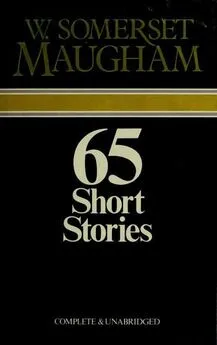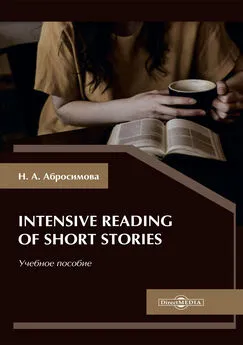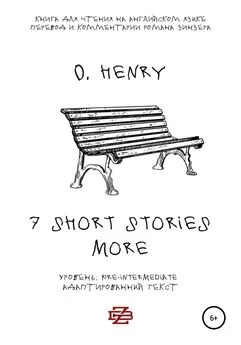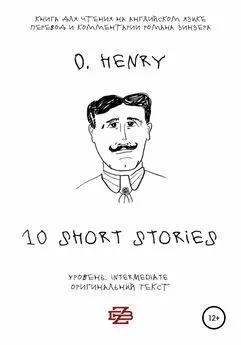Somerset Maugham - Sixty-Five Short Stories
- Название:Sixty-Five Short Stories
- Автор:
- Жанр:
- Издательство:неизвестно
- Год:неизвестен
- ISBN:нет данных
- Рейтинг:
- Избранное:Добавить в избранное
-
Отзывы:
-
Ваша оценка:
Somerset Maugham - Sixty-Five Short Stories краткое содержание
Sixty-Five Short Stories - читать онлайн бесплатно полную версию (весь текст целиком)
Интервал:
Закладка:
'I wonder if they've got any chocolate eclairs,' said Beatrice.
'Of course they have.'
And of course they had. Frank thrust one whole into her huge mouth, swallowed it and seized another, but before she ate it she looked at the other two and plunged a vindictive dagger into the heart of the monstrous Lena.
'You can say what you like, but the truth is she played a damned rotten game of bridge, really.'
'Lousy,' agreed Arrow.
But Beatrice suddenly thought she would like a meringue.
The Facts of Life
It was Henry Garnet's habit on leaving the city of an afternoon to drop in at his club and play bridge before going home to dinner. He was a pleasant man to play with. He knew the game well and you could be sure that he would make the best of his cards. He was a good loser; and when he won was more inclined to ascribe his success to his luck than to his skill. He was indulgent, and if his partner made a mistake could be trusted to find an excuse for him. It was surprising then on this occasion to hear him telling his partner with unnecessary sharpness that he had never seen a hand worse played; and it was more surprising still to see him not only make a grave error himself, an error of which you would never have thought him capable, but when his partner, not unwilling to get a little of his own back, pointed it out, insist against all reason and with considerable heat that he was perfectly right. But they were all old friends, the men he was playing with, and none of them took his ill-humour very seriously. Henry Garnet was a broker, a partner in a firm of repute, and it occurred to one of them that something had gone wrong with some stock he was interested in.
'How's the market today?' he asked.
'Booming. Even the suckers are making money.'
It was evident that stocks and shares had nothing to do with Henry Garnet's vexation; but something was the matter; that was evident too. He was a hearty fellow, who enjoyed excellent health; he had plenty of money; he was fond of his wife, and devoted to his children. As a rule he had high spirits, and he laughed easily at the nonsense they were apt to talk while they played; but today he sat glum and silent. His brows were crossly puckered and there was a sulky look about his mouth. Presently, to ease the tension, one of the others mentioned a subject upon which they all knew Henry Garnet was glad to speak.
'How's your boy, Henry? I see he's done pretty well in the tournament.'
Henry Garnet's frown grew darker.
'He's done no better than I expected him to.'
'When does he come back from Monte?'
'He got back last night.'
'Did he enjoy himself?'
'I suppose so; all I know is that he made a damned fool of himself.'
'Oh. How?'
'I'd rather not talk about it if you don't mind.'
The three men looked at him with curiosity. Henry Garnet scowled at the green baize.
'Sorry, old boy. You call.'
The game proceeded in a strained silence. Garnet got his bid, and when he played his cards so badly that he went three down not a word was said. Another rubber was begun and in the second game Garnet denied a suit.
'Having none?' his partner asked him.
Garnet's irritability was such that he did not even reply, and when at the end of the hand it appeared that he had revoked, and that his revoke cost the rubber, it was not to be expected that his partner should let his carelessness go without remark.
'What's the devil's the matter with you, Henry?' he said. 'You're playing like a fool.'
Garnet was disconcerted. He did not so much mind losing a big rubber himself, but he was sore that his inattention should have made his partner lose too. He pulled himself together.
'I'd better not play any more. I thought a few rubbers would calm me, but the fact is I can't give my mind to the game. To tell you the truth I'm in a hell of a temper.'
They all burst out laughing.
'You don't have to tell us that, old boy. It's obvious.'
Garnet gave them a rueful smile.
'Well, I bet you'd be in a temper if what's happened to me had happened to you. As a matter of fact I'm in a damned awkward situation, and if any of you fellows can give me any advice how to deal with it I'd be grateful.'
'Let's have a drink and you tell us all about it. With a K.C., a Home Office official and an eminent surgeon-if we can't tell you how to deal with a situation, nobody can.'
The K.C. got up and rang the bell for a waiter.
'It's about that damned boy of mine,' said Henry Garnet.
Drinks were ordered and brought. And this is the story that Henry Garnet told them.
The boy of whom he spoke was his only son. His name was Nicholas and of course he was called Nicky. He was eighteen. The Garnets had two daughters besides, one of sixteen and the other of twelve, but however unreasonable it seemed, for a father is generally supposed to like his daughters best, and though he did all he could not to show his preference, there was no doubt that the greater share of Henry Garnet's affection was given to his son. He was kind, in a chaffing, casual way, to his daughters, and gave them handsome presents on their birthdays and at Christmas; but he doted on Nicky. Nothing was too good for him. He thought the world of him. He could hardly take his eyes off him. You could not blame him, for Nicky was a son that any parent might have been proud of. He was six foot two, lithe but muscular, with broad shoulders and a slim waist, and he held himself gallantly erect; he had a charming head, well placed on the shoulders, with pale brown hair that waved slightly, blue eyes with long dark lashes under well-marked eyebrows, a full red mouth, and a tanned, clean skin. When he smiled he showed very regular and very white teeth. He was not shy, but there was a modesty in his demeanour that was attractive. In social intercourse he was easy, polite, and quietly gay. He was the offspring of nice, healthy, decent parents, he had been well brought up in a good home, he had been sent to a good school, and the general result was as engaging a specimen of young manhood as you were likely to find in a long time. You felt that he was as honest, open, and virtuous as he looked. He had never given his parents a moment's uneasiness. As a child he was seldom ill and never naughty. As a boy he did everything that was expected of him. His school reports were excellent. He was wonderfully popular, and he ended his career, with a creditable number of prizes, as head of the school and captain of the football team. But this was not all. At the age of fourteen Nicky had developed an unexpected gift for lawn tennis. This was a game that his father not only was fond of, but played very well, and when he discerned in the boy the promise of a tennis-player he fostered it. During the holidays he had him taught by the best professionals and by the time he was sixteen he had won a number of tournaments for boys of his age. He could beat his father so badly that only parental affection reconciled the older player to the poor show he put up. At eighteen Nicky went to Cambridge and Henry Garnet conceived the ambition that before he was through with the university he should play for it. Nicky had all the qualifications for becoming a great tennis-player. He was tall, he had a long reach, he was quick on his feet, and his timing was perfect. He realized instinctively where the ball was coming and, seemingly without hurry, was there to take it. He had a powerful serve, with a nasty break that made it difficult to return, and his forehand drive, low, long, and accurate, was deadly. He was not so good on the backhand and his volleying was wild, but all through the summer before he went to Cambridge Henry Garnet made him work on these points under the best teacher in England. At the back of his mind, though he did not even mention it to Nicky, he cherished a further ambition, to see his son play at Wimbledon, and who could tell, perhaps be chosen to represent his country in the Davis Cup. A great lump came into Henry Garnet's throat as he saw in fancy his son leap over the net to shake hands with the American champion whom he had just defeated, and walk off the court to the deafening plaudits of the multitude.
As an assiduous frequenter of Wimbledon Henry Garnet had a good many friends in the tennis world, and one evening he found himself at a City dinner sitting next to one of them, a Colonel Brabazon, and in due course began talking to him of Nicky and what chance there might be of his being chosen to play for his university during the following season.
'Why don't you let him go down to Monte Carlo and play in the spring tournament there?' said the Colonel suddenly.
'Oh, I don't think he's good enough for that. He's not nineteen yet, he only went up to Cambridge last October; he wouldn't stand a chance against all those cracks.'
'Of course, Austin and von Cramm and so on would knock spots off him, but he might snatch a game or two; and if he got up against some of the smaller fry there's no reason why he shouldn't win two or three matches. He's never been up against any of the first-rate players and it would be wonderful practice for him. He'd learn a lot more than he'll ever learn in the seaside tournaments you enter him for.'
'I wouldn't dream of it. I'm not going to let him leave Cambridge in the middle of a term. I've always impressed upon him that tennis is only a game and it mustn't interfere with work.'
Colonel Brabazon asked Garnet when the term ended.
'That's all right. He'd only have to cut about three days. Surely that could be arranged. You see, two of the men we were depending on have let us down, and we're in a hole. We want to send as good a team as we can. The Germans are sending their best players and so are the Americans.'
'Nothing doing, old boy. In the first place Nicky's not good enough, and secondly, I don't fancy the idea of sending a kid like that to Monte Carlo without anyone to look after him. If I could get away myself I might think of it, but that's out of the question.'
'I shall be there. I'm going as the non-playing captain of the English team. I'll keep an eye on him.'
'You'll be busy, and besides, it's not a responsibility I'd like to ask you to take. He's never been abroad in his life, and to tell you the truth, I shouldn't have a moment's peace all the time he was there.'
They left it at that and presently Henry Garnet went home. He was so flattered by Colonel Brabazon's suggestion that he could not help telling his wife.
'Fancy his thinking Nicky's as good as that. He told me he'd seen him play and his style was fine. He only wants more practice to get into the first flight. We shall see the kid playing in the semi-finals at Wimbledon yet, old girl.'
To his surprise Mrs Garnet was not so much opposed to the notion as he would have expected.
'After all the boy's eighteen. Nicky's never got into mischief yet and there's no reason to suppose he will now.'
'There's his work to be considered; don't forget that. I think it would be a very bad precedent to let him cut the end of term.'
'But what can three days matter? It seems a shame to rob him of a chance like that. I'm sure he'd jump at it if you asked him.'
'Well, I'm not going to. I haven't sent him to Cambridge just to play tennis. I know he's steady, but it's silly to put temptation in his way. He's much too young to go to Monte Carlo by himself.'
'You say he won't have a chance against these crack players, but you can't tell.'
Henry Garnet sighed a little. On the way home in the car it had struck him that Austin's health was uncertain and that von Cramm had his off-days. Supposing, just for the sake of argument, that Nicky had a bit of luck like that-then there would be no doubt that he would be chosen to play for Cambridge. But of course that was all nonsense.
Читать дальшеИнтервал:
Закладка:










